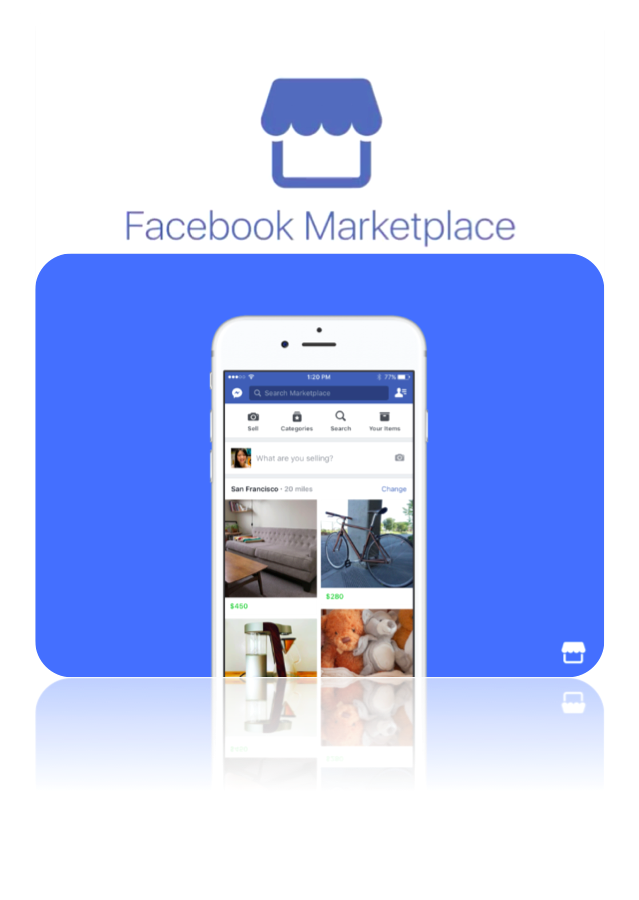Facebook Joins the Collaborative Economy
Facebook has announced the launch of its Marketplace, a new feature in four countries that enables users to buy and sell their used goods using Facebook connections. While Facebook’s strongest advantage is a network of trusted users, it must develop more sophisticated features to compete against established players. But it has a good start, as the environmental benefits of Facebook Marketplace for helping individuals reuse goods rather than send them to the junk yard will be of particular help for many migrating students, new families, or those seeking to change up their personal items.

Market Timing: Existing Startups Under Fire
At a macro level, the startups in the Collaborative Economy Honeycomb are undergoing a shakeup as VC funding is being reduced, startups are being acquired, and regulators are putting the pressure on. The end result is that some startups are having to fold up shop. Facebook’s market entry is smart timing, as it can be a trusted player.
Marketplace Competition
To the casual observer, it would be easy to compare Facebook Marketplace to established players like eBay, Yerdle, Nextdoor, Listia, or Taobao, but these players are far ahead of Marketplace. Marketplace could pose some threats to Craigslist local listings for users seeking to find people they may know, or listings from friends of friends. And the potential is huge; for scale, massive eBay has 164 million active users in Q2 2016, a far cry from Facebook’s 1.7 billion users in the same period.
Four Features Facebook Is Missing:
While Facebook offers a very strong trust graph of people you know in your area, Marketplace lacks a few key features, including:
- A payment system that enables digital transactions, similar to eBay using credit cards or PayPal.
- A guaranteed bidding system so the buyer doesn’t have to worry about getting the item.
- A shipping solution or meeting place (sometimes called a “sharespot”) to enable people to share goods, whether it be at local police stations or Amazon lockers.
- Lastly, there doesn’t appear to be a ratings or review feature so buyers and sellers can rate each other, especially if people don’t know them, to build further trust.
The Future for Marketplace
Facebook must improve its feature set, then move into ride and home sharing. An ideal next move would be for Facebook to tie in its Messenger payment system, enabling seamless transactions, and potentially move into more lucrative on-demand commerce systems like ride sharing, or perhaps even home sharing, thereby threatening Uber and Airbnb. By enabling the commerce aspect, not only does this make transactions easier for members, but Facebook will have yet another revenue stream. This isn’t an odd concept, as in China, Uber has sold off assets to Didi, which is owned by Tencent and Alibaba – companies that offer a wide range of Internet products. Yet before Facebook can move into new markets beyond used goods, it must first bolster those four missing features in order to prepare the platform.
Want more? Read my body of work on the Collaborative Economy, filled with data, slides, and more.
you can definitely be sure of the quality of my site
?????? ACE21?? ??? ??? ????? ?????.???, ???, ??????, ?? , ??????, ?????, ?????, ????? ? ?? ??? ??? ???? ??? ? ?? ?????? ?? ??? ???? ?????!” />
https://8mod.net/baccaratsite/
Please visit my site because it will help to relieve stress
?????? ?????? ?? ??? ???, ????, ??, ?????, ???, ???, ?? ?? ??? ?????! ??? ???????? ? ?? ??? ??? ?????!” />
https://main7.net/
do you already know the vaccines you should give to your new babies come on and visit my site to find out
http://kheymomo.blogspot.com/